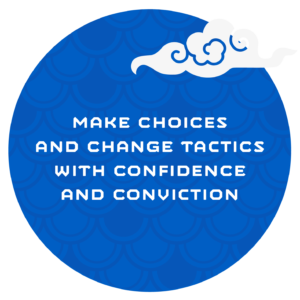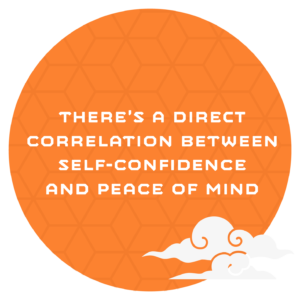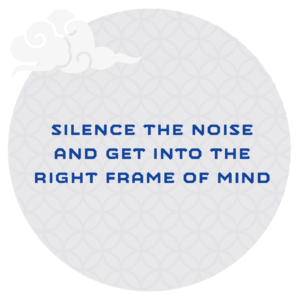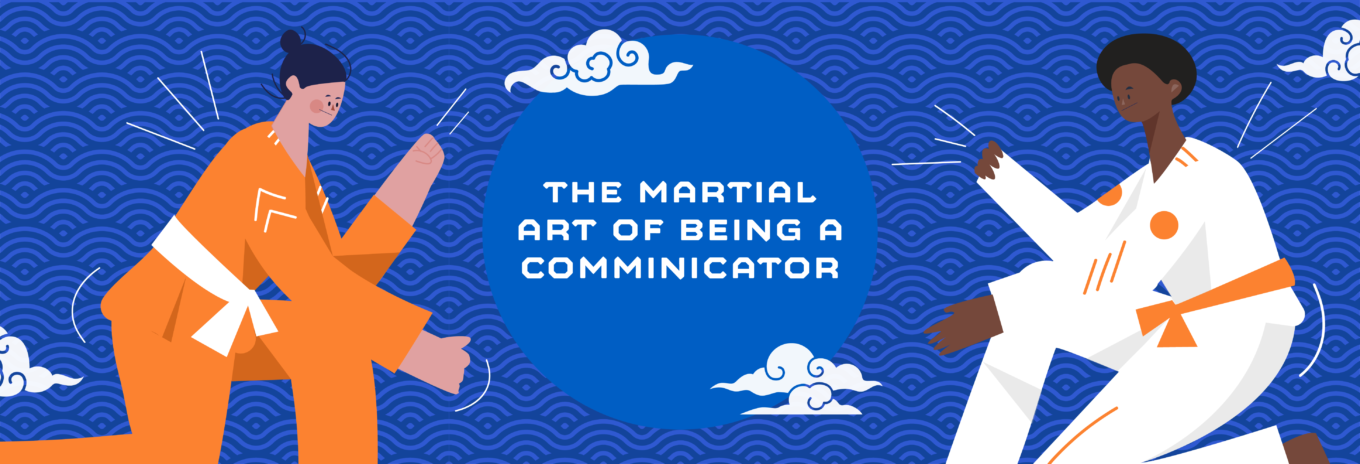The award-winning Morumbi Jiu Jitsu Academy in California defines Martial Arts as an eclectic sport with a rich history that teaches you what you can accomplish through perseverance and focus.
It’s just as much about the mind as it is the body, giving you the opportunity to develop the following four core qualities:
- Flexibility
- Positive attitude
- Endurance
- Mental concentration
It’s all about how to read different codes, systems and people – each form of Martial Arts encourages you to make choices and change tactics with confidence and conviction. That’s why the sport has such a profound effect on the way you carry yourself through life, your self-esteem and even your ability to lead others.
So, what does this have to do with comms?
The four qualities that Martial Arts is said to bring out in people are also key to being an effective communicator – we too combine different skills, specialisms and styles to overcome obstacles and respond to new challenges.
Of course, it depends on the context of your role, task or team but like Martial Arts, comms is all about striking the right balance between discipline and flexibility, leadership and independence, positivity and concentration.
While this doesn’t mean we must all immediately sign up to a Martial Arts class (although, that could be good fun), we can use Martial Arts as a foundation for thinking about our own qualities, skills and strengths and the value they bring to the wonderful world of comms…
Flexibility
Flexibility isn’t just about touching your toes or doing a sky-high karate kick. Flexibility means being adaptable and agile, able to quickly change your tactics or approach.
In his book ‘Adaptability’, Max McKeown discusses the importance of this in the world of business. While it’s impossible to plan for every eventuality, Max says “adaptability is all about looking ahead, reading the signs.” You can avoid being caught off-guard by keeping an open mind, experimenting, and seeing what incremental changes you can make to your plan.
Next time you’re faced with an unexpected challenge or the possibility of failure, try to see it as an opportunity rather than a barrier and ask yourself: How can I adapt my plan to make this work?
Positive attitude
Having a positive attitude can be easier said than done, but it’s such an important part of building relationships, connecting and overcoming obstacles.
When you feel the negative energy creeping in, make a conscious effort to surround yourself with optimists, seek out positive news and take note of what makes you feel inspired.
In their book ‘Profit from the Positive’, Margaret Greenberg and Senia Maymin explain the Social Contagion Theory. In a nutshell, your emotions spread to those around you and in turn, have the power to impact their productivity, mood and wellness.
Try radiating your positive energy by making it a part of your communication. Tell stories, share tips, make social plans and others will feel the benefits too!

Endurance
When we have great endurance, we get the difficult jobs done, and when we get the difficult jobs done, we gain more self-confidence.
Teachers of Martial Arts often say there’s a direct correlation between self-confidence and peace of mind. So, next time you persevere through a tough situation or challenging task, notice the impact it has on you. Are you feeling more self-assured? Sharing your experiences with fellow colleagues? Offering a new starter your support and expertise?
Mental concentration
There are so many ways that our attention can be dragged away from the task in hand. Martial Arts encourages you to silence the noise and get into the right frame of mind by looking inward and concentrating on your own thoughts, movements and goals.
In ‘Deep Work’ Cal Newport says, “multitasking is no good for productivity. Neither is being electronically connected all the time.” Therefore, we must “define boundaries and minimise distraction.” Try carving out some time in your diary to focus, turning off your notifications and putting your phone away.
Want to take things one step further? Take what Cal calls an “internet sabbath” – write down specific timeslots for using the internet and “you’ll be amazed at how your focus skyrockets!”
Each of these qualities, skills and strengths are an extremely valuable part of being an effective communicator and a great leader, but they come with practice.
If you push yourself past your usual limits every now and again, you could gain more self-awareness and self-confidence than you ever thought possible.
What do you believe is key to mastering the art of comms? Tweet us @alivewithideas.
















